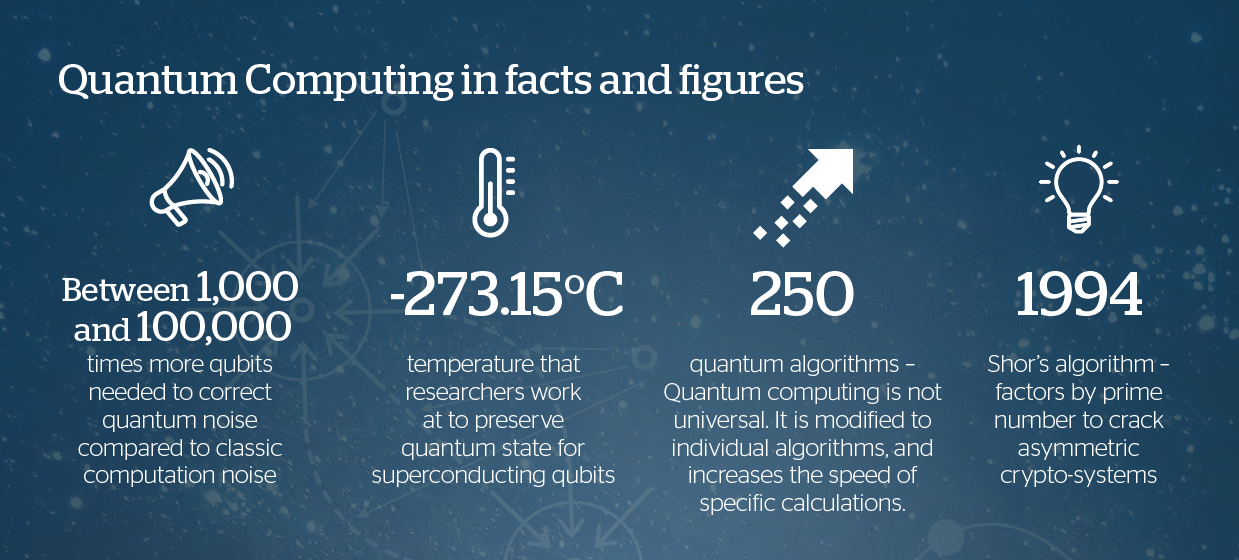
The Outcomes of Quantum Computing: Exploring its applications and challenges
Last Updated on March 21, 2023 by Editorial Team
Author(s): Deepankar Varma
Originally published on Towards AI.

Applications of Quantum Computing
Quantum computing has the potential to transform many industries and solve problems that are currently impossible to solve with classical computers. Some of the most promising applications of quantum computing include:
- Cryptography and cybersecurity: Quantum computing has the ability to crack the cryptographic algorithms that are currently used to secure data and communication. However, it can also be used to develop more secure algorithms that are virtually uncrackable by classical computers. This will be critical as our society becomes increasingly reliant on digital communication and data storage.
- Drug discovery and material science: Quantum computing has the ability to simulate molecular interactions and chemical reactions much more efficiently than classical computers. This will allow for faster and more accurate drug discovery and the development of new materials with unique properties.
- Optimization problems: Quantum computing can solve optimization problems much faster than classical computers. This will be particularly useful in fields such as logistics, finance, and supply chain management, where large-scale optimization problems are common.
- Climate modeling: Quantum computing can simulate complex climate models much faster than classical computers, which will allow for more accurate predictions of climate change and the development of more effective strategies for mitigation.
- Machine learning: Quantum computing can accelerate machine learning algorithms and improve their performance. This will be particularly useful in fields such as image and speech recognition, natural language processing, and autonomous vehicles.
Challenges of Quantum Computing
While quantum computing has the potential to transform many industries, there are also significant challenges that must be overcome in order to realize its full potential. Some of the biggest challenges include:
- Hardware limitations: Quantum computers are currently very limited in terms of their size and the number of qubits they can support. This limits the complexity of problems that can be solved with quantum computing and makes it difficult to scale the technology.
- Error correction: Quantum computing is much more prone to errors than classical computing due to the delicate nature of qubits. Developing robust error correction techniques will be critical to the development of reliable quantum computing systems.
- Complexity: Quantum computing is a fundamentally different way of approaching computation than classical computing, and it requires a completely new set of algorithms and programming techniques. This makes it difficult for developers to adapt to quantum computing and limits the number of people who are able to work with the technology.
- Security: Quantum computing has the potential to break many of the cryptographic algorithms that are currently used to secure data and communication. This means that new cryptographic algorithms will need to be developed that are resistant to quantum attacks.
- Standards: There are currently no universally accepted standards for quantum computing, which makes it difficult for researchers and developers to collaborate and share ideas. Developing standards will be critical to the development of a robust and scalable quantum computing industry.

Outcomes of Quantum Computing
The outcomes of quantum computing are likely to be far-reaching and transformative, with the potential to reshape many industries and solve some of the world’s most pressing problems. Some of the most significant outcomes include:
- Increased computational power: Quantum computing will provide a significant boost in computational power, allowing for the solution of complex problems that are currently unsolvable by classical computers. This will be particularly useful in fields such as drug discovery, optimization, and climate modeling.
- Improved efficiency: Quantum computing has the potential to greatly improve efficiency in a wide range of industries, from logistics and supply chain management to healthcare and finance. By solving optimization problems much faster, quantum computing can help to reduce costs and increase productivity.
- New scientific discoveries: Quantum computing has the potential to unlock new scientific discoveries in fields such as chemistry, physics, and biology. By simulating molecular interactions and chemical reactions much faster and more accurately, quantum computing can help to accelerate research and development in these fields.
- Enhanced cybersecurity: Quantum computing can be used to develop new cryptographic algorithms that are resistant to quantum attacks. This will help to enhance cybersecurity and protect sensitive data and communication.
- Increased innovation: Quantum computing is a completely new and revolutionary technology that will require new approaches to programming and algorithm development. This will likely lead to increased innovation and new breakthroughs in a wide range of industries.
Conclusion
Quantum computing is a technology that has the potential to transform many industries and solve some of the world’s most pressing problems. However, there are also significant challenges that must be overcome in order to realize its full potential. These challenges include hardware limitations, error correction, complexity, security, and standards. Despite these challenges, the outcomes of quantum computing are likely to be far-reaching and transformative, with the potential to greatly improve efficiency, unlock new scientific discoveries, enhance cybersecurity, and increase innovation. As quantum computing continues to evolve and develop, it will be critical for researchers and developers to work together to address these challenges and realize the full potential of this revolutionary technology.
Join thousands of data leaders on the AI newsletter. Join over 80,000 subscribers and keep up to date with the latest developments in AI. From research to projects and ideas. If you are building an AI startup, an AI-related product, or a service, we invite you to consider becoming a sponsor.
Published via Towards AI














